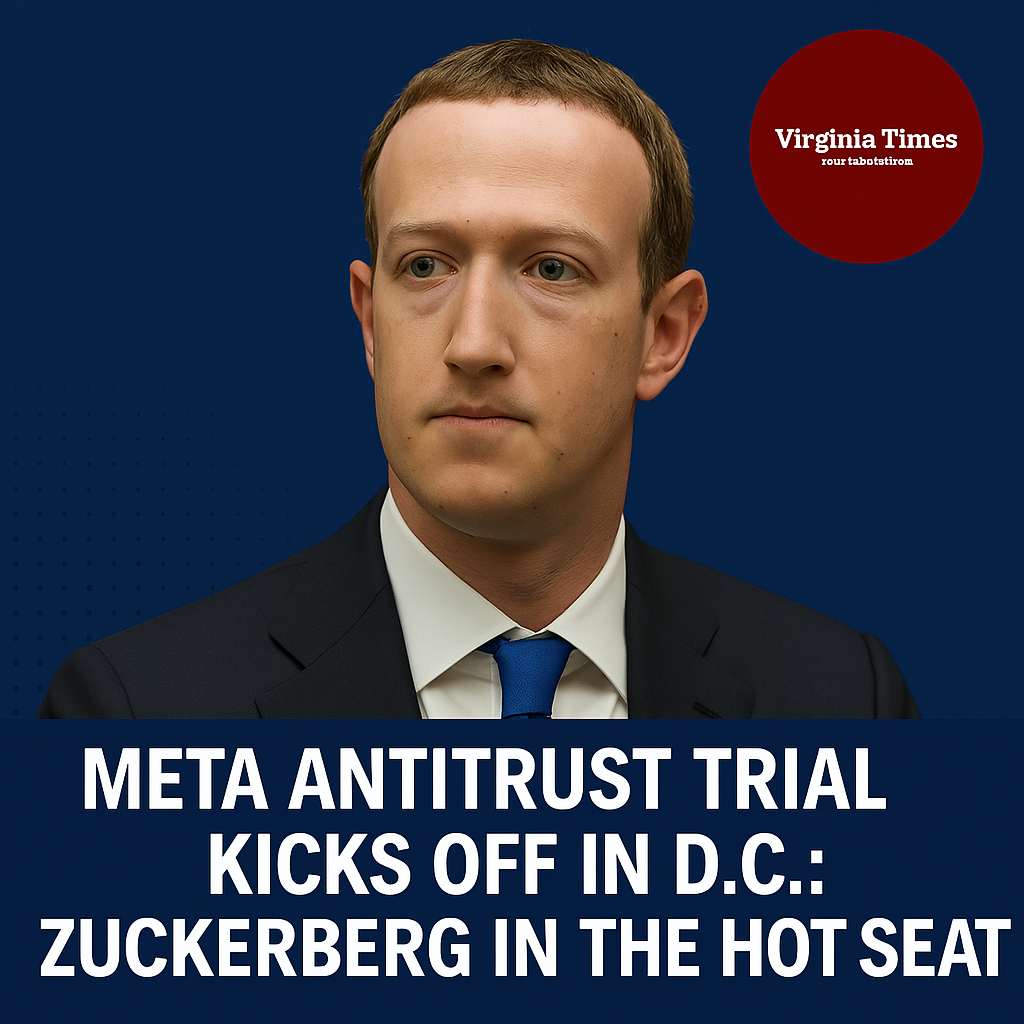A landmark antitrust case against Meta Platforms Inc. got underway Monday in a Washington, D.C., federal court as U.S. regulators attempt to dissolve one of the most powerful tech behemoths of the modern era. The Federal Trade Commission (FTC), joined by a coalition of state attorneys general, contends that Meta—corporate parent of Facebook, Instagram, and WhatsApp—unlawfully maintained monopoly power by buying up rivals and stifling competition.
The trial is considered one of the most important legal cases in Silicon Valley history and could reshape how the U.S. government regulates digital markets dominated by a handful of firms.
FTC’s Primary Argument: Monopoly via Acquisition
The FTC contends that Meta’s blockbuster acquisitions of Instagram in 2012 ($1 billion) and WhatsApp in 2014 ($19 billion) were not just growth strategies but rather strategic efforts to eliminate upstart rivals. Regulators contend that Meta founder and CEO Mark Zuckerberg approved the deals with the intention of eliminating the threats to Facebook’s monopoly in the personal social networking space.
Key points of evidence are expected to include internal communications—particularly a 2012 email in which Zuckerberg purportedly discussed purchasing Instagram as a way of staving off competitive injury. The FTC contends that Meta’s conduct does take a violate Section 2 of the Sherman Antitrust Act by policing monopoly power via anticompetitive acquisitions.
Notably, the FTC defines Meta’s market as “personal social networking,” a category that specifically excludes services like TikTok and YouTube. This narrow definition will be an area of dispute at trial, as Meta argues that the FTC’s definition does not reflect the changing nature of social media today.
Zuckerberg Expected to Testify
Mark Zuckerberg, 40, will probably testify at trial—possibly within weeks. As the primary decision-maker behind Meta’s corporate strategy, his testimony in the courtroom could be determinative. At past congressional hearings in 2020, Zuckerberg had defended the acquisitions of Instagram and WhatsApp as forward-looking transactions that spurred innovation and brought users benefits.
Prosecutors, nevertheless, will probably confront him with documents showing that Meta sought not to compete—but dominate—by eliminating impending threats.
Judge and Witness Lineup
The trial is being overseen by U.S. District Judge James Boasberg of the District of Columbia. While witnesses will include high-ranking Meta executives such as Instagram head Adam Mosseri and former COO Sheryl Sandberg, there has been no word on testimony from rivals such as Snap Inc.’s Evan Spiegel, despite speculation.
More than one million internal documents could be entered into the record during the multi-week trial.
Meta Pushes Back: Innovation, Not Intimidation
Meta’s attorneys are fighting hard for the company, stating that both WhatsApp and Instagram thrived under its ownership and delivered new, easy-to-use features—such as encrypted messaging and “Stories”—that benefited billions of individuals globally.
The company contends that it is facing intense competition from services including TikTok, Snapchat, YouTube, and Apple’s iMessage. “The FTC’s complaint ignores the fact that there is a highly competitive tech marketplace,” Meta said in a public statement. “Users have more choices than ever before, and Meta’s innovations have helped create that diversity.”
Meta also blames the FTC’s definition of the social media market as outdated and too narrow, saying it distorts the picture of user conduct and market realities.
What’s at Stake
If the FTC wins, Meta could be forced to divest Instagram and WhatsApp—a novelty that would have ripple effects across the tech sector. That would effectively undo Meta’s cross-platform advertising empire, which generated tens of billions of dollars in revenue last year, with a hefty majority deriving from Instagram.
Additionally, the FTC seeks to stop Meta from future acquisitions that can undermine market competition and may seek penalties for what it refers to as exaggerated ad prices harming businesses and consumers.
On the other hand, if Meta prevails, it could blunt the Biden-era push for more robust antitrust enforcement against Big Tech and give further legal ammunition to the likes of Google, Amazon, and Apple as they face similar scrutiny in the U.S. and abroad.
Global and Political Context
Meta’s antitrust issues are not confined to the United States. The company is facing increasing regulatory pressure across Europe, where it has been fined for violating data protection regulations, and in nations like India, where its competitive practices are facing fresh scrutiny.
In the U.S., bipartisan concern is growing about the tech giants’ dominance, even if legislators remain divided over what to do about it—solutions range from breakup to regulatory oversight and content moderation reforms.
Verdict Months Away
The trial is expected to run several weeks, with a ruling likely months off. However, every testimony and exhibit that emerges has the potential to have long-term effects on the oversight of competition in digital markets.
For now, Silicon Valley’s—and the world’s—tech industry is monitoring a Washington, D.C. courtroom where the destiny of Meta’s empire is determined.
(With inputs from news agencies)
A global media for the latest news, entertainment, music fashion, and more.





